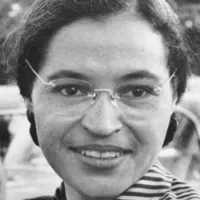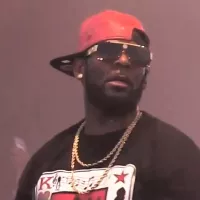The NAACP Image Awards is an annual ceremony organized by the National Association for the Advancement of Colored People (NAACP) in the United States. The awards celebrate exceptional performances in film, television, theatre, music, and literature, with over 40 categories determined by NAACP members' votes. The ceremony also features honorary awards, such as the President's Award, the Chairman's Award, the Entertainer of the Year, the Activist of the Year, and the Hall of Fame Award. Beyoncé holds the record for the most wins, with 25 awards as a solo artist.
August 13, 1967: First NAACP Image Awards Ceremony
On August 13, 1967, activists Maggie Hathaway, Sammy Davis Jr., and Willis Edwards, leaders of the Beverly Hills-Hollywood NAACP branch, organized and presented the first NAACP Image Awards ceremony.
1973: No Ceremony Due to Timing Changes
In 1973, the NAACP Image Awards did not take place due to adjustments in the timing of the awards ceremony, shifting to honor a full calendar year.
1981: Return to "Late-in-Year" Ceremony
In 1981, the NAACP Image Awards reverted to a "late-in-year" ceremony, a format that had been used previously.
1983: Difficulty Verifying Winners
Sources encountered difficulties verifying the winners in the top categories for the NAACP Image Awards from 1983 onward.
1987: First Televised NAACP Image Awards
In 1987, the NAACP Image Awards were taped for television for the first time by NBC, marking a significant step in the awards' visibility.
1987: Controversy Over Lack of Best Actress Award
In 1987, the NAACP faced criticism for not presenting the Best Actress award, citing a lack of substantial roles for Black women in the film industry.
1990: Return to "Late-in-Year" Ceremony
In 1990, the NAACP Image Awards reverted to a "late-in-year" ceremony, a format that had been used previously.
1990: Renewed Criticism Over Best Actress Award
The NAACP again received criticism in 1990 for not awarding Best Actress, making it the fourth time they could not find enough nominees for the category, highlighting the lack of significant roles for Black women in the film industry.
1991: No Ceremony Due to Timing Changes
The NAACP Image Awards were not held in 1991 due to the timing of the event being too late in the calendar year to honor that same year.
December 1993: Sexual Assault Charges Filed Against Tupac Shakur
In December 1993, rapper Tupac Shakur faced serious allegations of sexual assault, marking a controversial period in his career.
1994: End of NBC Broadcast Partnership
In 1994, NBC's run of broadcasting the NAACP Image Awards came to an end. They had broadcast the awards in January, on weeks when Saturday Night Live wasn't airing a new episode.
1994: Controversial Nominations
The 1994 NAACP Image Awards faced controversy due to the nomination of rapper Tupac Shakur for Outstanding Actor in a Motion Picture for "Poetic Justice" despite facing sexual assault charges and other legal issues. Martin Lawrence's win for "Martin" amidst criticism of the show's sexual content added to the controversy.
1995: No Ceremony Held
No ceremony was held for the NAACP Image Awards in 1995.
1995: Difficulty Verifying Winners
Sources encountered difficulties verifying the winners in the top categories for the NAACP Image Awards up until 1995.
1996: First Primetime Broadcast
1996 marked a pivotal year for the NAACP Image Awards as it began its primetime broadcast, significantly increasing its reach and impact.
2003: Controversy Surrounding "Barbershop" Nominations
The 2003 NAACP Image Awards saw controversy arise from the five nominations received by the comedy film "Barbershop", including Outstanding Motion Picture and Outstanding Supporting Actor for Cedric the Entertainer. The controversy stemmed from Cedric's character's disparaging remarks about prominent civil rights figures, drawing criticism and leading to Rosa Parks' refusal to attend the ceremony.
2004: OutKast Nominations and "Rosa Parks" Song Controversy
Hip-hop group OutKast's six nominations at the 2004 NAACP Image Awards generated controversy, particularly due to their song titled "Rosa Parks." The song had resulted in a defamation lawsuit from Rosa Parks over the use of her name, creating a point of contention regarding the nominations.
2004: R. Kelly Nomination Amidst Legal Issues
In 2004, R. Kelly's "Chocolate Factory" received a nomination for Outstanding Album at the NAACP Image Awards, sparking debate and criticism as he was under indictment on charges related to child pornography.
2007: First Live Broadcast of the Awards
The 38th edition of the NAACP Image Awards in 2007 marked the first time the ceremony was broadcast live on the Fox Network. Prior to this, the ceremony had been broadcast with tape delay.
2008: Redesign of the Trophy
The NAACP Image Awards trophy was redesigned in 2008, with the New York firm Society Awards taking on the manufacturing of the new trophy.
Mentioned in this timeline

Tupac Shakur also known as Pac and Makaveli was a...

Rosa Parks an American civil rights activist is renowned for...
Saturday Night Live SNL is a late-night live sketch comedy...
The National Broadcasting Company NBC is a major American commercial...

Robert Sylvester Kelly known as R Kelly was a highly...

Calendars are systems for organizing days by naming time periods...
Trending

25 minutes ago Clara Tauson Dominates Linette in Dubai, Secures WTA 1000 Quarterfinal Spot

25 minutes ago Pegula Defeats Jovic, Advances to Dubai Quarterfinals; Set to Face Tauson
25 minutes ago Toyota Supra and Lexus LC May Share Platform for Next Generation Models
26 minutes ago Alaska Airlines pilots get shocking pay raises, reshaping network and margins.
26 minutes ago Ramadan 2026 Timetable: Fasting Hours, Suhoor, and Iftar Times Worldwide Confirmed.
1 hour ago Ski Mountaineering to Debut at Milan-Cortina Winter Olympics in 2026.
Popular

Jesse Jackson is an American civil rights activist politician and...
Randall Adam Fine is an American politician a Republican who...

Pam Bondi is an American attorney lobbyist and politician currently...

Barack Obama the th U S President - was the...

Martin Luther King Jr was a pivotal leader in the...

Ken Paxton is an American politician and lawyer serving as...